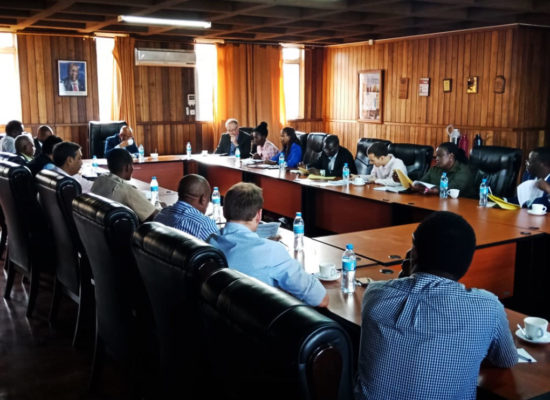Coffee Stakeholders resume dialogue over coffee challenges in Tanzania


On August 9th, the National Coffee Stakeholder Committee (NCSC) in Tanzania successfully resumed the public-private dialogue after a break of eight months since the Prime Minister released new directives in January 2018. The Tanzania Coffee Board (TCB) coordinated and organized a coffee stakeholders’ meeting, with the support of the Global Coffee Platform (GCP). The meeting’s main objective consisted in finding how coffee stakeholders can work together and make the sector thrive in the Tanzanian context.
During the meeting, there were constructive discussions and a Q&A session. This allowed the private sector players the opportunity to obtain clarifications from TCB on the new guidelines. Additional topics were discussed, among them the roles and difficulties of the farmers cooperatives (AMCOS), the relationship between farmers and the private sector and the process for certified coffee and its marketing.

The meeting gathered members of the NCSC covering the entire coffee value chain including producers, processors, millers, exporters, roasters, services providers and regulators. One of the biggest conclusions after the event was the need of continuing the dialogue on a quarterly basis. Therefore, Café Africa will act as Secretariat for the NCSC and organize next meetings while improving the communication on sector issues at the same time. It was agreed that further data on coffee production and consumption at local level was needed to offer better basis for further decision making. A field trip to the Kilimanjaro region will also help TCB to better understand the issues of the AMCOs.
The participants highly appreciated that the first step had been taken to restart the dialogue. All sides concluded that only together they can tackle the issues of the Tanzanian coffee sector.

The essence of the new directives requires all farmers to be organized in cooperatives (AMCOS) and all coffee to be sold through the auction. Direct sales from farmer to exporter were prohibited, causing quite some frustrations and disruption of communication between the government and the private sector.
See more information here: https://dailycoffeenews.com/2018/05/14/tanzania-coffee-farmers-and-traders-face-stark-new-regulatory-reality/
If you are interested in the National Platform in Tanzania, click here.
